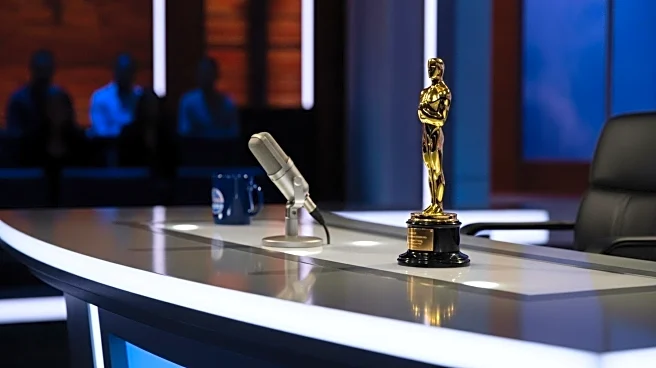What's Happening?
Jimmy Kimmel returned to late-night television after a week-long suspension, achieving a 10-year ratings high for 'Jimmy Kimmel Live!' with 6.26 million viewers. The suspension followed remarks Kimmel made about the accused killer of conservative activist Charlie Kirk, which led to social media outrage and pressure from the Trump administration. Despite not airing in several major markets, the show attracted significant online viewership, with millions of views on platforms like YouTube and Instagram. Kimmel's return was marked by a monologue addressing the controversy and thanking supporters.
Why It's Important?
Kimmel's return and the subsequent ratings surge highlight the ongoing tensions between media personalities and political figures, particularly in the context of satire and free speech. The incident reflects broader challenges faced by traditional television in retaining viewership amid the rise of streaming platforms. The pressure from political entities on media companies raises concerns about censorship and the influence of politics on entertainment. Kimmel's ability to draw significant online engagement suggests a shift in how audiences consume late-night content.
What's Next?
Nexstar Media Group and Sinclair have opted to keep 'Jimmy Kimmel Live' off their ABC stations, affecting its reach. Discussions between Nexstar and Disney are ongoing to ensure the program aligns with community interests. The situation may lead to further scrutiny of media regulation and the role of political influence in broadcast decisions. The FCC's involvement and potential investigation into ABC could have implications for media governance and the protection of free speech.
Beyond the Headlines
The incident underscores the evolving landscape of late-night television, where traditional formats are challenged by digital platforms. It raises questions about the future of political satire and the balance between entertainment and political discourse. The role of corporate entities in navigating political pressures while maintaining creative freedom is increasingly critical.










